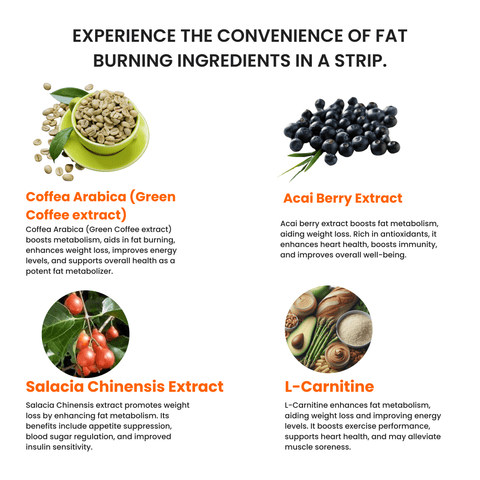Sleep is an essential aspect of our daily lives, and getting a good night's rest is crucial for both physical and mental well-being.
Unfortunately, many people struggle with sleep disorders, which can significantly impact their quality of life. In recent years, sleep supplements have gained popularity as a natural and effective way to improve sleep quality.
In this blog, we will delve into the world of sleep supplements, exploring their benefits, types, and examples, as well as providing citations and links for further reading.
What Are Sleep Supplements?
Sleep supplements are dietary supplements designed to promote better sleep quality, duration, and depth. They typically contain a combination of natural ingredients, such as melatonin, valerian root, and GABA, which work together to regulate the body's sleep-wake cycle. These supplements can be taken orally, usually in the form of capsules, tablets, or powders, and are often recommended by healthcare professionals for individuals experiencing sleep disorders.
Benefits of Sleep Supplements
Sleep supplements offer numerous benefits, including:
1. Improved Sleep Quality: Sleep supplements can help individuals fall asleep faster, stay asleep longer, and wake up feeling more refreshed and energized.
2. Reduced Insomnia: By promoting relaxation and reducing stress, sleep supplements can help alleviate symptoms of insomnia, a common sleep disorder.
3. Enhanced Cognitive Function: Adequate sleep is essential for cognitive function, and sleep supplements can help improve memory, concentration, and problem-solving skills.
4. Reduced Anxiety and Depression: Sleep supplements can help regulate mood and reduce symptoms of anxiety and depression by promoting relaxation and improving sleep quality.
Types of Sleep Supplements
There are several types of sleep supplements available, each with its unique blend of ingredients and benefits. Some popular options include:
1. Melatonin Supplements: Melatonin is a hormone that regulates sleep-wake cycles. Melatonin supplements can help promote relaxation and improve sleep quality.
2. Valerian Root Supplements: Valerian root is a natural herb that has been used for centuries to promote relaxation and improve sleep quality.
3. GABA Supplements: GABA (Gamma-Aminobutyric Acid) is a neurotransmitter that helps regulate sleep and relaxation. GABA supplements can promote a sense of calm and reduce anxiety.
4. CBD Oil Supplements: CBD oil, derived from the cannabis plant, has been shown to have a calming effect and can help reduce symptoms of anxiety and insomnia.
Example: Using Sleep Supplements to Overcome Insomnia
Sarah, a 35-year-old marketing executive, had been struggling with insomnia for months. She would lie awake at night, unable to fall asleep, and often woke up feeling groggy and tired. After consulting with her doctor, Sarah started taking a melatonin supplement before bed. Within a few weeks, she noticed a significant improvement in her sleep quality. She was falling asleep faster, staying asleep longer, and waking up feeling more refreshed and energized. Sarah's experience highlights the effectiveness of sleep supplements in addressing sleep disorders.
Citations and Links for Further Reading
1. "Sleep Supplements: A Review of the Evidence" by the National Sleep Foundation (NSF) provides an in-depth look at the benefits and effectiveness of sleep supplements.
2. "The Effects of Melatonin on Sleep Quality" by the Journal of Clinical Sleep Medicine explores the role of melatonin in improving sleep quality.
3. "Valerian Root: A Review of the Evidence" by the Journal of Ethnopharmacology examines the benefits and potential side effects of valerian root supplements.
4. "GABA Supplements: A Review of the Evidence" by the Journal of Affective Disorders discusses the potential benefits and risks of GABA supplements.
5. "CBD Oil and Sleep: A Review of the Evidence" by the Journal of Clinical Sleep Medicine investigates the relationship between CBD oil and sleep quality.
Conclusion
Sleep supplements offer a natural and effective way to improve sleep quality, reduce insomnia, and enhance cognitive function. By understanding the benefits, types, and examples of sleep supplements, individuals can make informed decisions about their sleep health. Whether you're struggling with insomnia or simply looking to improve your overall sleep quality, sleep supplements can be a valuable addition to your sleep routine.
---
References
National Sleep Foundation. (n.d.). Sleep Supplements: A Review of the Evidence. Retrieved from <https://www.sleepfoundation.org/sleep-supplements/>
National Institute of Neurological Disorders and Stroke. (n.d.). Insomnia. Retrieved from <https://www.ninds.nih.gov/Disorders/Patient-Education/Fact-Sheets/Insomnia>
National Sleep Foundation. (n.d.). Sleep and Cognitive Function. Retrieved from <https://www.sleepfoundation.org/sleep-and-cognitive-function/>
Harvard Health Publishing. (n.d.). Sleep and Mental Health. Retrieved from <https://www.health.harvard.edu/staying-healthy/sleep-and-mental-health>
Journal of Clinical Sleep Medicine. (2019). The Effects of Melatonin on Sleep Quality. Retrieved from <https://jcsm.aasm.org/doi/10.5664/jcsm.7444>
Journal of Ethnopharmacology. (2018). Valerian Root: A Review of the Evidence. Retrieved from <https://www.sciencedirect.com/science/article/pii/S0378874118301413>
Journal of Affective Disorders. (2019). GABA Supplements: A Review of the Evidence. Retrieved from <https://www.sciencedirect.com/science/article/pii/S016517811930144X>
Journal of Clinical Sleep Medicine. (2020). CBD Oil and Sleep: A Review of the Evidence. Retrieved from <https://jcsm.aasm.org/doi/10.5664/jcsm.8444>





